
How should we be talking to our daughters about money?
It’s never too early to introduce money skills to children – but how should we be talking to young girls about finances? After all, the gender pay gap is no myth. Among full-time employees, the median hourly pay was 8.3% less for women than men in April 2022, according to the Office of National Statistics (ONS). It impacts pension saving too: a report published by the Institute for Fiscal Studies (IFS) earlier this year found that across all working-age people, women had average total annual pension contributions of £2,600, compared with £3,400 for men. Women are also less likely to invest. In a survey of 6000 UK adults in 2022, Boring Money estimated that only 40% of investors are women. Alexandra Loydon, director of partner engagement and consultancy at wealth management company St. James’s Place, points out that the “financial services industry has traditionally not targeted women”, adding that there is “an opportunity for the industry” to change this. There are also lots of systemic factors that form an important part of the picture, especially in terms of equal opportunities, pay and maternity/paternity leave. Alongside this though, how can parents and guardians help by talking to young girls about money? “We should be encouraging women to engage with their finances from a young age, and save more when they can and if they can. We should ensure that women take advice, put a plan in place, set goals and don’t touch their long-term savings to help build their wealth over time,” says Loydon. Zoe Brett, financial planner at EQ Investors, agrees that “financial literacy needs to start at school age”. Here are three key things to think about when talking to young girls about money… Encourage them to negotiate “We should be instilling and encouraging women to not be afraid to ask for pay rises and promotions. Statistically, women are more likely to not go for jobs if they do not meet all the requirements [compared with men],” says Loydon. So, how can you model this early? “If rewarding good report card or exam results, ask them to tell you how much or what that achievement is worth and why,” suggests Brett. “Or if paying pocket money, then ensure they are earning it with chores and do a pay review each year, where you ask them to make a case for a raise in pocket money.” Teach them basic money language Introducing them to money management concepts can be incorporated into family life. “We often see children’s chores as mowing the lawn or doing household duties, but how about implementing something more financially orientated, like helping with a weekly shopping budget?” suggests Brett. Done in a positive, age-appropriate way, this could help them become familiar and confident with some basic money language. “Being open and discussing finances during family dinners can also be helpful – children are naturally inquisitive and will likely ask questions or at least passively soak up information,” Brett adds. “For something more structured, there are online courses aimed at teens that teach money basics, or even just following a decent financial influencer on social media can be a great way to teach.” Encourage saving for things they want Saving is an important life skill and instilling this early can empower children with a sense of independence around personal finances and earning power. “If I wanted something, my mum would tell me to save up half the cost of it, and she would pay the other half. It taught me to only spend my money on things I truly wanted. If I wasted my money on sweets, then I simply couldn’t have that new toy I wanted,” Brett recalls of her own childhood. “I didn’t realise it at the time, but every time I put money into my savings account, my mum would double it. This lovingly sneaky little trick gave me an early lesson in compounding and made me want to save more, because I could see my savings growing, it was a real sense of achievement.” Of course, not all households will be able to do this, especially when living costs are stretched. But teaching girls how to save, however possible, is so useful. If you are in a position to do so, Brett suggests: “Open a savings account early on and give them autonomy for that account, with a little guidance along the way. Encourage them to put 25% of their pocket money, earnings, or birthday money into the savings account… Encourage is the optimal word here, enforcing it could lead to resentment and rebellion,” she adds. Read More Charity boss speaks out over ‘traumatic’ encounter with royal aide Ukraine war’s heaviest fight rages in east - follow live STI cases at record highs: 6 things everyone needs to know about sexually transmitted infections What’s wrong with my roses? Men’s Health Week: How to talk about sensitive or ’embarrassing’ health issues
1970-01-01 08:00
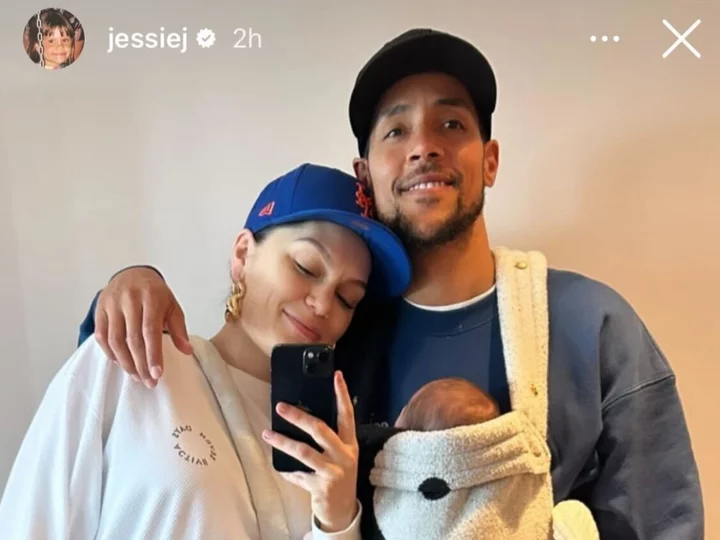
Jessie J announces name of her and Chanan Safir Colman’s baby boy
Jessie J has revealed the name of her newborn baby, who she welcomed last month with partner Chanan Safir Colman. The “Domino” singer has been enjoying being a new mother and celebrated her son’s one-month milestone on Sunday (11 June). Today (Monday 12 June), she posted a new photograph of her baby boy and wrote in the caption: “Mans like… Sky Safir Cornish Colman.” Jessie, whose full name is Jessica Cornish, also shared several snaps from the day she gave birth to Sky on her Instagram Stories. In one photo, she is pictured still in her hospital dressing gown with her son on her chest. In one photo, she is making a fist pump gesture, indicating her happiness at having given birth. Another post is a selfie of her, Colman and Sky posing in front of a mirror and smiling as a family. To mark his first month, Jessie shared a reel including the first moments of Sky’s birth. She said that the past 30 days have “felt like one long best day of my entire life”. “Mummy and Daddy love you more than anything in this world baby boy,” she added. Jessie also thanked her fans for following her pregnancy and motherhood journey, adding: “Please join me in sharing in my joy.” Colman also shared a black-and-white photo of him holding Sky in his hands to commemorate the baby’s first month of life. He wrote: “Since you were born, work, food and sleep seem completely irrelevant. When you look deep into my soul while taking the biggest s*** in my hands, I smile, when you pee all over me while I change you, I laugh, when you frantically kiss/suck on the side of my face, shoulder or neck looking for your mother’s breast, my heart smiles, and when you fall asleep on me with your arms wrapped around me, I feel complete.” Last January, Jessie revealed that she was pregnant one year after she suffered a miscarriage. At the time, the singer said she was “so happy and terrified” to share the news and asked fans to “be gentle with me”. Announcing the birth of her son, she wrote on her Instagram Story that her heart “grew twice the size”. “I am flying in love. He is magic. He is all my dreams come true. He is my whole [world]. He and I are both doing great,” she said. “I am soaking up every second and can’t believe he is real, here, and mine.” The singer previously kept her baby’s father’s identity under wraps, but recently revealed that her partner is the Danish-Israeli basketball player Colman. “I struggle to keep things private. I think if you know me you know that. I want to protect people I love and keep it for just myself...and then so often I think f*** it because life is short but I don’t want to regret it,” she said in an Instagram post. Cornish shared that she met Colman during a difficult time after she had dealt with her miscarriage in 2021 and described him as a “beam of light”. “He lit up my dark days. It was a whirlwind love and a miracle that we fell pregnant naturally with not one issue during,” she recalled. Read More Shapewear is booming, and body image experts are worried: ‘It’s really dangerous’ Kelis addresses Bill Murray dating rumours for the first time OnlyFans model Elle Brooke praised for ‘perfect’ response to Piers Morgan’s concerns about her career
1970-01-01 08:00

Wall Street Journal: George Soros has handed control of his charitable and political activities to his son Alex
Billionaire George Soros, a leading philanthropist and contributor to liberal political causes, has tapped his 37-year old son Alexander Soros to lead his charitable foundation and political action committee, according to the Wall Street Journal.
1970-01-01 08:00

Roundup: Jodie Comer Wins Tony Award; Latest on I-95 Collapse; Novak Djokovic Wins French Open
Jodie Comer won the Tony Award for Best Actress, the latest on the I-95 collapse, Novak Djokovic won the French Open and more in the Roundup.
1970-01-01 08:00

Swiss police officers on trial over Black man's death
By Emma Farge LAUSANNE, Switzerland (Reuters) -Six Swiss policemen appeared in court on Monday charged over the death of a
1970-01-01 08:00
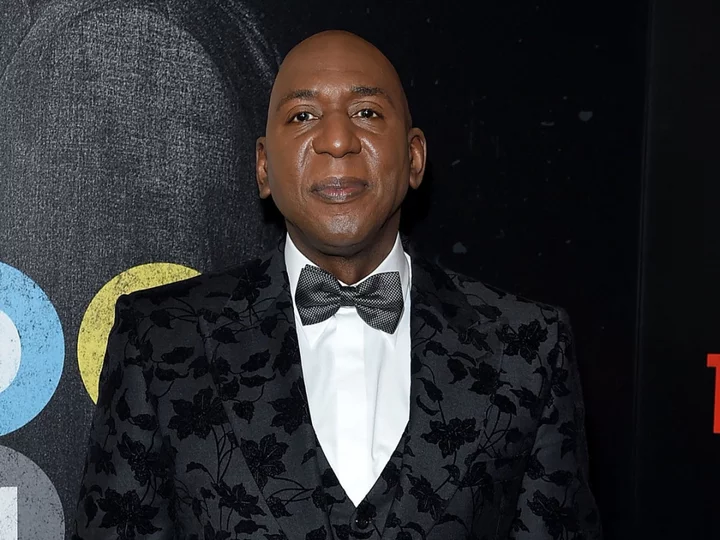
Colin McFarlane diagnosed with prostate cancer
Colin McFarlane has revealed that he has been diagnosed with prostate cancer. The Dark Knight star, 61, said he discovered the condition nine months after his brother was also diagnosed with the same cancer. McFarlane, also known for his roles in Doctor Who and Outlander, explained that both he and his brother found out about the cancer after taking a prostate-specific antigen (PSA) test, which can be given to men without symptoms after a consultation with a doctor. The actor said that he has been regularly testing for cancer after a fellow actor who was treated for it 17 years ago told him about its prevalence among Black men. He said: “I was already aware of the risk to me, so had been having annual and then six-monthly regular PSA blood tests with my GP. “Thankfully, just over a year ago, I had told my brother to get a PSA blood test otherwise he wouldn’t have been diagnosed, because he had no symptoms.” He added that he is “one of the lucky ones” as he has been “able to catch this very early”. McFarlane added: “So, although I have been diagnosed with prostate cancer, I do not require any treatment. “I am being regularly monitored with PSA blood tests every three months and an MRI (or magnetic resonance imaging scan) once a year.” “As it’s a very slow-moving cancer I am in the best possible position to ascertain what treatment I would need in the future if that were ever deemed necessary, and currently that scenario is a long way off,” he continued. “It’s men who take no action and don’t know anything about their prostate health that are at the greatest risk.” His diagnosis arrived on the same day as his late mother Gwendolyn’s birthday. She died at the age of 94 earlier this year. McFarlane is backing Prostate Cancer UK’s campaign to encourage men over 50 and Black men over 45 to get a PSA test, as a result of his experience. The charity said that Black men are at double the risk of getting the disease, with one in four expecting to get it in their lifetime, compared to one in eight among other men. McFarlane said: “Too many men black men are dying from prostate cancer. They need to know that a simple blood test could save their life.” In The Dark Knight, McFarlane appeared as Gotham City police commissioner Gillian B Loeb, alongside Christian Bale and Sir Michael Caine. He has also made several appearances in Doctor Who and is the voice of The Cube on the ITV game show. Additional reporting by PA Read More Shapewear is booming, and body image experts are worried: ‘It’s really dangerous’ Kelis addresses Bill Murray dating rumours for the first time Prince Andrew ‘staying in Royal Lodge amid renovations in case he is evicted’ Men’s Health Week: How to talk about sensitive or ’embarrassing’ health issues 13 cancer symptoms you should get checked now
1970-01-01 08:00

Amy Schumer says she stopped taking Ozempic because of side-effects
Amy Schumer has opened up about the reason why she stopped taking Ozempic, as she urged celebrities to be honest about their weight loss. The 43-year-old actor and comedian appeared on Watch What Happens Live with Andy Cohen on Thursday (8 June), where she revealed that tried taking the type 2 diabetes drug Ozempic for weight loss last year. “Like a year ago, I tried it,” she told Cohen, before admitting that she stopped taking the FDA-approved medication because of its side effects. “I was one of those people that felt so sick and couldn’t play with my son,” Schumer explained, referring to her four-year-old son Gene, who she shares with husband Chris Fischer. “I was so skinny and he’s throwing a ball at me and [I couldn’t].” Although the Trainwreck star admitted that she was “immediately invested” before trying the drug, she ultimately decided that Ozempic wasn’t “livable” for her. However, Schumer did take a moment to call out celebrities who have been “lying” about taking the once-weekly antidiabetic injection for weight loss. “Everyone’s like: ‘Smaller portions,’” she joked. “Shut the f*** up. You’re on Ozempic, or one of those things.” Much like Ozempic, FDA-approved medications Wegovy and Mounjaro are also brand names for semaglutide – which work by mimicking a hormone that regulates appetite and creates the feeling of fullness. “Just stop,” Schumer added. “Just be real with the people.” The Inside Amy Schumer star even noted how she was open about undergoing liposuction for weight loss in January 2022. “When I got lipo, I was like, I got lipo,” she said. Ozempic, a once-weekly injection used for the treatment of type 2 diabetes, has skyrocketed in use after people were reportedly prescribed the diabetes medication as an “off-label” weight loss drug. Meanwhile, Wegovy and Mounjaro are once-weekly semaglutide injections specifically approved for the treatment of obesity and weight loss. There are many side effects of taking medications like Ozempic, Wegovy, and Mounjaro. According to the US Food and Drug Administration (FDA), the most common side effects of taking Wegovy include nausea, diarrhea, vomiting, constipation, abdominal pain, headache, fatigue, indigestion, dizziness, and digestive disorders. The FDA has also warned against more serious complications that can occur from using Wegovy or Mounjaro, such as the “potential risk of thyroid C-cell tumours,” pancreatitis, gallbladder problems, acute kidney injury, increased heart rate, and suicidal behaviour or thinking. Meanwhile, taking Ozempic can lead to possible thyroid tumours, including cancer, pancreatitis, changes in vision, and kidney and gallbladder problems. Amy Schumer isn’t the only celebrity to open up about taking certain medications for weight loss. Comedian Chelsea Handler previously revealed that she “didn’t know” she was on Ozempic because her doctor allegedly “hands it out to anybody”. During an appearance on Alex Cooper’s Call Her Daddy podcast in January, the Chelsea Lately star spoke candidly about the alleged widespread use of Ozempic in Hollywood and her concerns over its popularity. “So, my anti-ageing doctor just hands it out to anybody,” Handler claimed. “I didn’t even know I was on it. She said: ‘If you ever want to drop five pounds, this is good.’” She said she realised she was taking the type 2 diabetes drug for weight loss after feeling nauseous while at lunch with a friend, who was also on Ozempic. When her friend asked if Handler was taking the medication, which the comedian referred to as “semaglutide” during their conversation, her friend informed her Ozempic was simply a brand name for semaglutide. However, Handler said she stopped taking the medication after she realised what it was. “I’m not on it anymore. That’s too irresponsible,” she shared. “I’m an irresponsible drug user, but I’m not gonna take a diabetic drug. I tried it, and I’m not gonna do that. That’s not for me. That’s not right for me.” Read More Shapewear is booming, and body image experts are worried: ‘It’s really dangerous’ OnlyFans model Elle Brooke praised for ‘perfect’ response to Piers Morgan’s concerns about her career Prince Andrew ‘staying in Royal Lodge amid renovations in case he is evicted’ STI cases at record highs: 6 things everyone needs to know about sexually transmitted infections Men’s Health Week: How to talk about sensitive or ’embarrassing’ health issues Jonnie Irwin explains why he hasn’t told his sons about his terminal cancer
1970-01-01 08:00
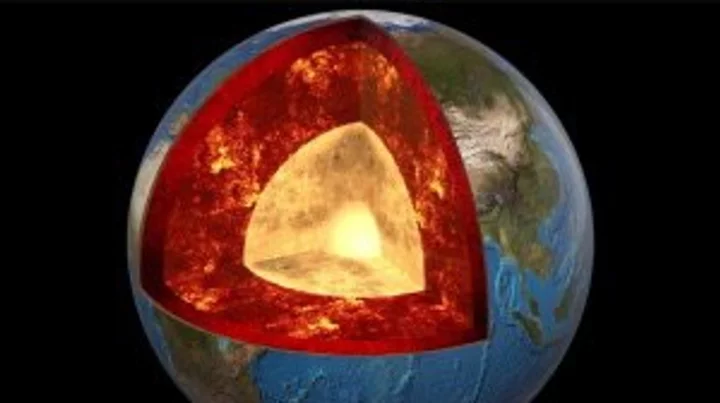
Two giant structures deep within the Earth could be the remains of an ancient planet
Many of us look to the stars for answers to life’s most complex questions. But actually, some of the greatest mysteries lie beneath our very feet. One might think we’d know the Earth pretty well by now but, in fact, our planet’s core remains shrouded in enigma. Indeed, there are two gigantic blobs located beneath Africa and the Pacific Ocean that occupy around six per cent of the world’s entire volume. And yet, we’re still not entirely sure what they’re made of or where they came from. There are a number of hypotheses, including that they are piles of oceanic crust that have accumulated over billions of years. Sign up for our free Indy100 weekly newsletter But a more interesting theory is that they are huge chunks of an ancient planet that hit the Earth around 4.5 billion years ago. To give an indication of just how massive these things are, the structure under Africa – an area known as Tuzo – is thought to be around 800km (497 miles) tall – the equivalent of some 90 Mount Everests stacked on top of one another, as IFLScience notes. The problem with determining the origin of these monster formations is that there are no direct ways of observing the Earth’s core. The deepest hole humans have ever dug – branded the "entrance to hell" – reached a pretty staggering 12,263m (40,230ft), but that doesn’t even come close to breaking through the crust to the layers beneath. Our most effective tool for analysing what lies beneath the ground is a technique called seismic tomography, which looks at how waves of energy travel when earthquakes occur. Since rocks and liquids have different densities, the waves move through them at different speeds. By measuring the tremors from different points on the surface, geologists can determine what kind of material the waves are travelling through and, in so doing, map out the Earth’s interior. It was by using this technique that the two unusual structures – known as large low shear velocity provinces (LLSVPs) – were found. Waves travel more slowly in these areas – fondly known as “blobs” – than through the surrounding lower mantle, indicating that they’re made of something different. We can’t tell what this material is based on seismic tomography data alone, but some scientists like to believe that they are the remnants of an ancient planet called Theia – an idea known as the “giant impact hypothesis”. According to this hypothesis, around 4.5 billion years ago, a Mars-sized object collided with the Earth. This impact not only created the planet we call home today, but also threw off enough rock to form the moon that lights up our night skies. Some scientists suggest that some of Theia’s leftovers also sunk to the bottom of the planet, probably settling somewhere above the core – thereby forming at least one of the two LLSVPs. More Updates About Strange Blob Structures Inside Planet Earth youtu.be Experts have been investigating the area for decades but there’s still no way of knowing for sure just what these two giant blobs are. Still, studies into Theia have offered important insights into how the possible collision might have kickstarted key plate tectonic and mantle motion inside our planet – crucial processes for establishing the world on which we live. It’s also a useful reminder that we still have so much to learn about our planet and where we came from. Have your say in our news democracy. Click the upvote icon at the top of the page to help raise this article through the indy100 rankings.
1970-01-01 08:00
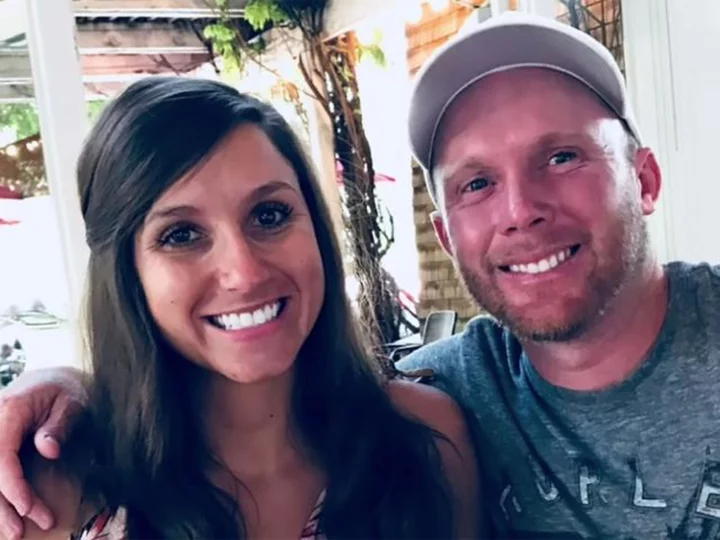
New details emerge about the alleged search history of the Utah mom charged with her husband's murder
"What is a lethal dose of fentanyl" is one of many phone searches that investigators say were made by Kouri Richins, a Utah widow accused of killing her husband before she authored a children's book about grief.
1970-01-01 08:00
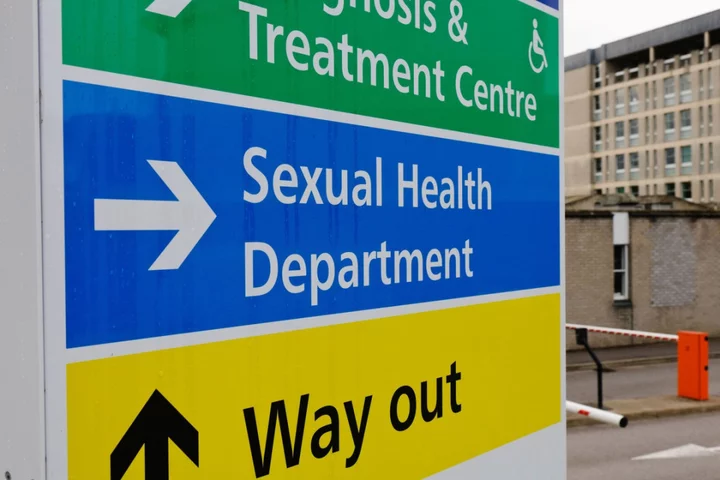
STI cases at record highs: 6 things everyone needs to know about sexually transmitted infections
Cases of gonorrhoea in England have reached record highs, while syphilis cases are at the highest level since just after the Second World War, according to the UK Health Security Agency (UKHSA). Gonorrhoea diagnoses rose to 82,592 in 2022, an increase of 50.3% compared to 2021, while infectious syphilis cases increased to 8,692 in 2022, the largest annual number since 1948. As well as gonorrhoea and syphilis, it’s important to be aware of the risk around all sexually transmitted infections (STIs) including chlamydia, genital herpes, genital warts and HIV. As Dr Hamish Mohammed, consultant epidemiologist at UKHSA, pointed out: “STIs aren’t just an inconvenience – they can have a major impact on your health and that of any sexual partners.” Here, sexual health experts talk through what you need to know about STI prevention, testing and treatment… 1. Anyone can potentially get an STI “Don’t think that because you haven’t caught one in the past – or because you only sleep with people that you don’t think have STIs – that you are immune, because the truth is that no one is,” Sarah Mulindwa, a specialist sexual health nurse who is working with Lovehoney, told PA Media. Regardless of gender, sexual orientation, whether you have lots of partners or you’re in a monogamous relationship, anyone can potentially get an STI. And they affect all age groups, too. “There’s no upper age limit on getting an STI,” Julie Bowring, consultant gynaecologist in sexual and reproductive health at London Gynaecology, added. The number of common STIs caught among the over 65s in the UK increased by 20% from 2017 to 2019, according to the Local Government Association. This may in part be due to differences in health awareness. “When that generation of patients were at school, they didn’t get quite as good and comprehensive sexual health education as we get now,” Bowring said. “And if you look at all the media campaigns for sexual health infections, it’s usually targeted at a younger demographic.” 2. Not all contraceptives protect against all STIs “It’s a common myth that when you’re on regular contraception, you might have protection against STIs,” said Bowring. “I think that can sometimes be missing in information that’s given to patients when they start contraception.” While birth control methods such as the pill, coil or IUD will protect against unintended pregnancy, they won’t protect against STIs. “Condoms [or dental dams] are the only effective method of protecting against STIs if you are sexually active,” said Mulindwa. “And even then, only when you use them correctly: wearing one to cover the whole length of the penis, and using from start to finish of sex, including during oral, anal, or vaginal penetration.” 3. Symptoms can vary greatly With a wide range of symptoms that vary in severity, STIs can sometimes be difficult to spot. “Certain STIs, such as chlamydia for example, might not even present any symptoms in the person that has it,” Mulindwa explained. “If you are experiencing any form of discomfort in and around your genitals, then it is imperative that you get tested right away.” Other signs may include an unusual discharge from the vagina, penis or anus; pain when peeing; lumps or skin growths around the genitals or anus; a rash; unusual vaginal bleeding; itchy genitals or anus; and blisters, sores or warts around these areas. “It can be quite difficult for women to sometimes know when a symptom might be STI related,” added Bowring. “It could be their periods, it could be something non-STI related. If there is a risk of infection and you have noticed a change in either your discharge or your pain, then it is worth getting checked out.” 4. Routine testing is a good idea Because some infections don’t result in any symptoms, routine testing is important. “If you’ve changed partner then it’s a good idea, if you haven’t had STI screening, to attend your local service to get that done,” Bowring advised. Home testing kits are also available with swabs and finger-prick blood tests. “It’s recommended that you screen at least every six months for the most common infections – chlamydia and gonorrhoea – and yearly for blood tests to screen for HIV, syphilis, and hepatitis C,” Mulindwa added. “Depending on your risk factors, you may need to screen more frequently.” 5. Treatments are available STIs are extremely common and there’s no need to feel embarrassed or ashamed if you do catch one, and treatments are available. “The majority of STIs are curable, and even those that aren’t – for example, herpes – have treatments available to manage outbreaks,” said Mulindwa. “Some STIs like chlamydia are treatable with a course of antibiotics, and others require creams and ointments.” 6. Options for people with HIV have come a long way Thanks to scientific breakthroughs, providing they have access to treatment, most people with HIV will not develop any AIDS-related illnesses and can live full lives. “There are now options available that can stop HIV reproducing in the body and prevent you from passing it on, as well as drugs designed to prevent infection if you have been exposed,” said Mulindwa. “People who are HIV positive and are undetectable (which means the level of the virus is very low) are unable to pass it on even when they have unprotected sex.” A relatively new drug called Pre-Exposure Prophylaxis (PrEP) – designed to reduce the chance of contracting HIV – can be helpful for people who may be at increased risk. Health professionals at NHS sexual health clinics can talk you through the options for preventing and managing HIV. Read More Charity boss speaks out over ‘traumatic’ encounter with royal aide Ukraine war’s heaviest fight rages in east - follow live What’s wrong with my roses? Men’s Health Week: How to talk about sensitive or ’embarrassing’ health issues Prince William responds after three guardsman collapse during UK heatwave
1970-01-01 08:00

Harry Styles pauses concert to assist fallen fan
Harry Styles brought his 'Love On Tour' jaunt to Ireland at the weekend.
1970-01-01 08:00

Noel Gallagher gets Later... with Jools Holland special
Noel Gallagher has performed live cuts for the BBC music show.
1970-01-01 08:00
